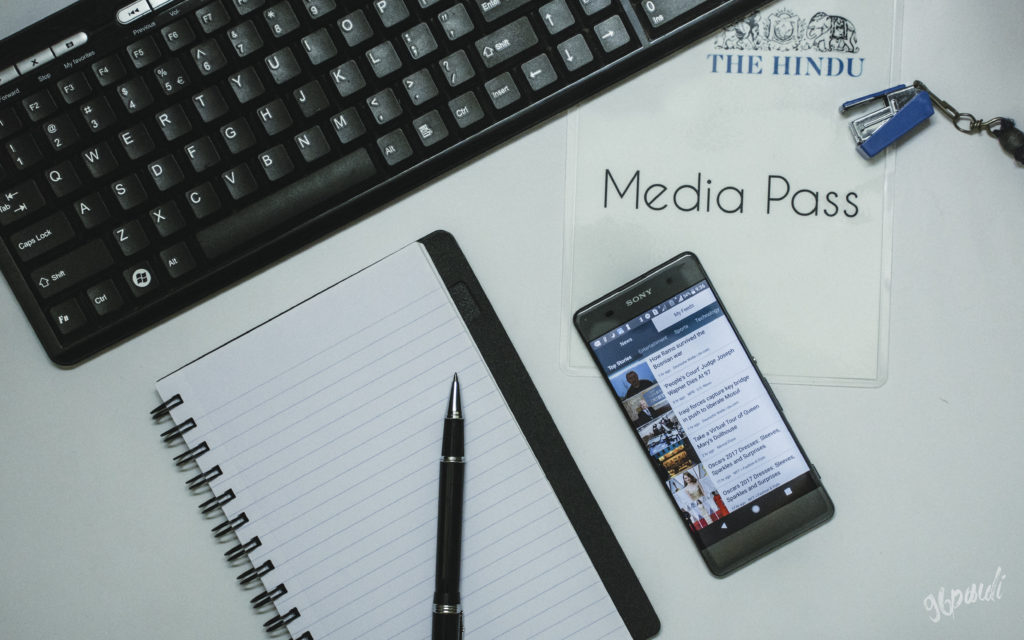
Lasantha Wickrematunge, a young boy living in Colombo took to writing at a very young age. As he grew up, he started his own newspaper range, the Sunday Leader. It voiced the voiceless and was mostly critical of the tyrannical rulers of his country. His newspaper soon became well known as the island’s “best independent newspaper”. Pretty soon, he started receiving death threats and was labeled as a “terrorist journalist”. And one unfortunate day, he was shot dead as he was driving to his work. In the weeks before his death, a funeral wreath was delivered to him, as well as a copy of the newspaper reading “If you write you will be killed” in red paint. In an editorial he had written shortly before his death, and that was published posthumously, he stated, “When finally I am killed, it will be the government that kills me. He was martyred for his work. This is the story of a world renowned journalist, known for his iconoclastic ways of journalism.
Journalism is the branch of knowledge that studies phenomena associated with news collection, distribution, and editing; a course of study, especially in institutions of higher learning, that teaches students how to write, edit, or report news. And the people who practice journalism are called journalists.
The above is the definition of both the work and study in terms of dictionary which sadly today is at the verge of peril. Every job be it that of a bureaucrat or a plumber isn’t devoid of consequences. Journalists, or more aptly for the course of this article, reporters, have faced flak globally for a long time for doing their jobs. Every media outlet under the sun has the duty to report facts with accuracy irrespective of their personal opinions. A reporter’s job is to report the news, whether it condemns his personal belief, religion or nationality. Reporters and journalists, when take up any job, also take up the herculean responsibility to correctly educate the masses on the happenings around them in an unbiased manner. Only a handful of the reporters succeed in doing so.
In unfortunate turn of events, journalists have not only endangered their lives but also have been subjected to grotesque murderers and inclement consequences in the process of uncovering the truth and trying to share it with the world.
At least 1,195 journalists have been killed because of their work since 1992, including several this month. In those identified as murders, prosecutions have occurred in only 13 percent of the cases.
Why are journalists the target? Is doing the work right the crime?
The vast majority were local journalists reporting on corruption, crime, human rights, politics and war, among other issues of vital importance to their societies. In 90 percent of all these cases there has been total impunity—no arrests, no prosecutions, no convictions. In some cases, the assassin or an accomplice has been convicted; in only a handful is the mastermind of the crime brought to justice.
Yes, we are against propaganda and sensationalist news as much as the next guy. These certain networks, people and publications cause a devastating effect on the integrity and reputation of media on the whole, which is sad, considering this makes people doubt honest news coverage brought to you by an investigative reporter who puts his or her career on the line to report the truth. Are we all doing enough to protect the people who think we deserve the truth? The Committee to Protect Journalists (CPJ) is an American independent non-profit, non-governmental organization that promotes press freedom and defends the rights of journalists. The American Journalism Review has called the organization “Journalism’s Red Cross”.
Journalists’ safety has become big business. Security companies, often employing former British and South African commandos, are thriving. Since the Balkans wars of the 1990s no editor of a major news outlet will send reporters to the frontline unless they receive “hostile environment” training from one of these firms. Yet despite this heightened safety awareness, more journalists than ever are dying for bearing witness with a camera or notebook. Security training focuses understandably on surviving in a war zone. But CPJ research shows that most journalists don’t die because they are caught in the wrong place at the wrong time or the unfortunate victims of crossfire or a terrorist bombing. More than three-quarters of journalist deaths are targeted murders, and the killers nearly always get away with it. Of the 68 deaths recorded this year 11 were in crossfire in a combat zone, while seven reporters were killed covering dangerous assignments such as police raids or street protests. Security training for the media has undoubtedly saved lives and should be available and affordable for all who put themselves in harm’s way to report news. Hopeless as it may seem in the aftermath of such a tragedies, a sustained fight can be effective. Since it launched its Impunity Campaign in the Philippines after the deadly massacre of dozens of journalists, with local journalists, CPJ has helped win venue changes in the trials of suspects accused of involvement in journalists’ slayings to prevent witnesses intimidation. Such victories may seem small but they are vital bricks that we must build in the wall against impunity.
What makes them go on even after a threat to their lives?
Lasantha Wickramatunga, a Sri Lankan editor known for his critical reporting on the conflict between the Sinhalese-dominated government and Tamil separatists. Government forces defeated the rebels this year after 26 years of fighting. In January, Wickramatunga wrote in The Sunday Leader: “People often ask me why I take such risks and tell me it is a matter of time before I am bumped off. Of course I know that: it is inevitable. But if we do not speak out now, there will be no one left to speak for those who cannot, whether they be ethnic minorities, the disadvantaged or the persecuted.”
Albert Camus once said “The only way to deal with an unfree world is to be so absolutely free that your existence is an act of rebellion.” These journalists and a many more who fight the shackles of corruption, the mighty and the wicked are manifestations of this quote. With truth comes liberation. And with liberation comes responsibility. It’s time for us to act and not react.


Leave a Reply
You must be logged in to post a comment.